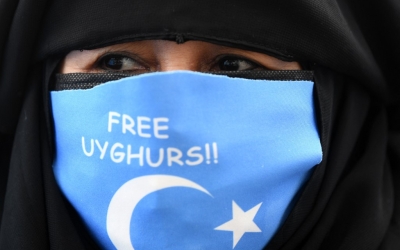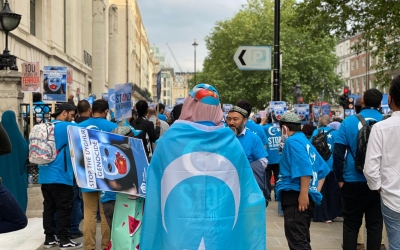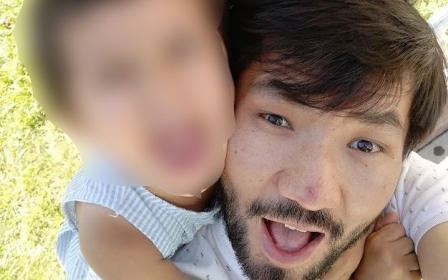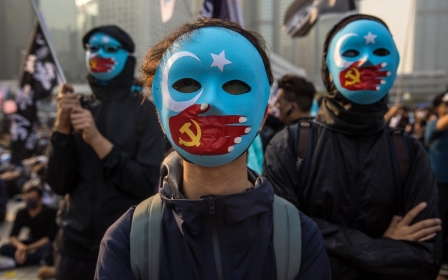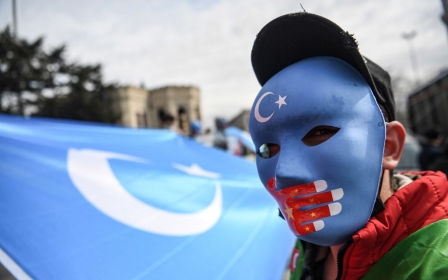Rights group calls on Olympic committee to ensure no links to forced Uighur labour
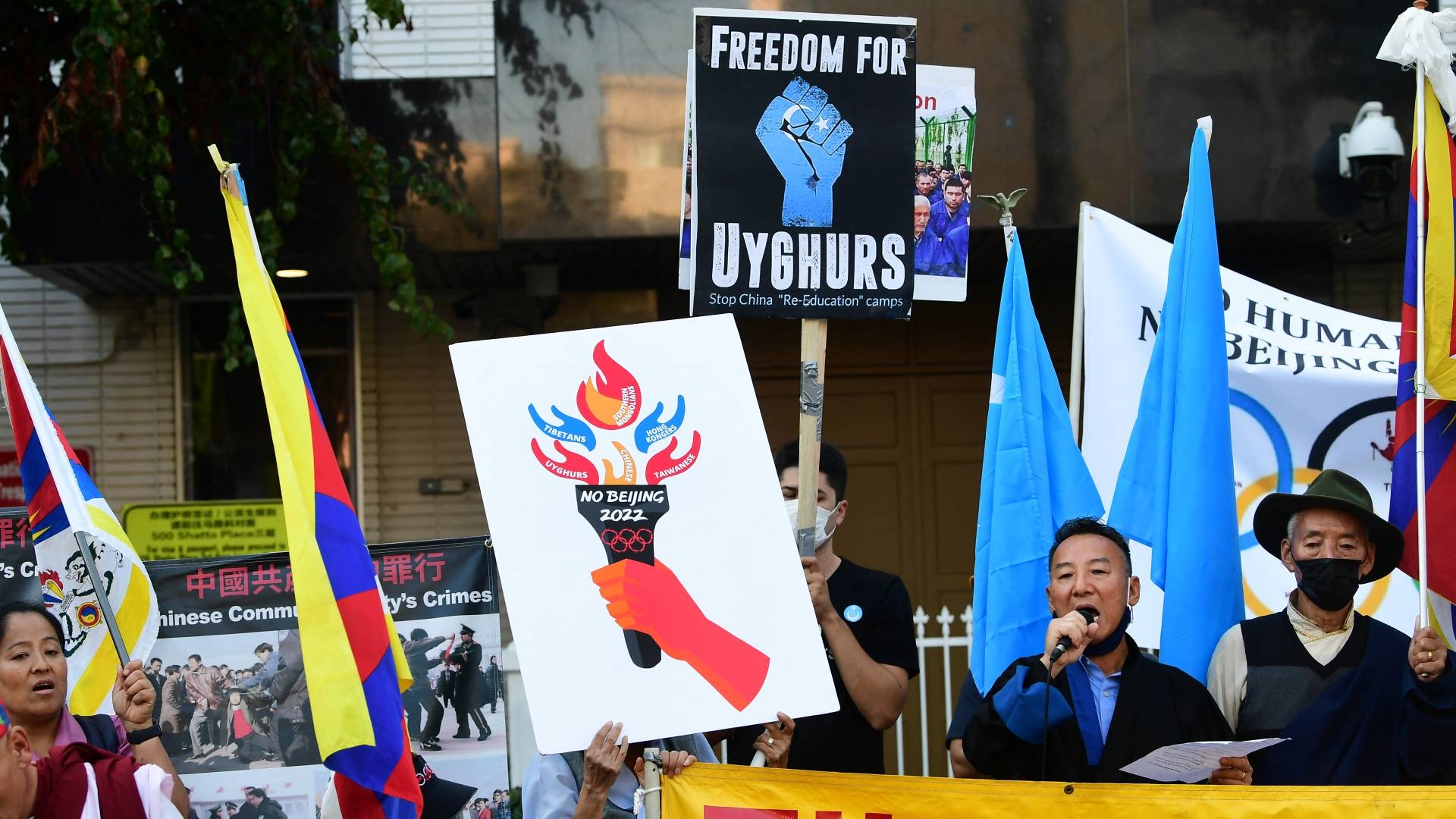
A Uighur human rights group has called on the International Olympic Committee (IOC) to explain what steps it has taken to ensure that official apparel for next month's Beijing Winter Games was not made using forced labour.
The Coalition to End Forced Labor in the Uighur Region said in a statement on Tuesday that the IOC has not offered credible evidence that Olympic-branded apparel was made without forced labour from China's Xinjiang region, where rights groups have said Uighurs and other predominantly Muslim minorities face systematic and state-organised "mass internment and torture amounting to crimes against humanity", as well as forced labour.
The group, a leading voice in a global movement to raise awareness of allegations of forced labour in the region, said that previous attempts to engage the organisation were not taken seriously.
"The IOC cannot be allowed to let so-called neutrality override morality when it comes to slave labour," Zumretay Arkin, World Uyghur Congress programme and advocacy manager, said in the statement.
The coalition centred its concerns around Chinese sportswear giant Anta Sports Products, which is the official supplier of IOC uniforms and Olympic apparel for the upcoming games.
Last year, Anta announced it would keep using cotton from Xinjiang, where human rights groups allege that China is employing forced labour in cotton harvesting.
Middle East Eye reached out to Anta but did not receive a response by the time of publication.
The IOC said in a statement to MEE that it recently carried out "third-party due diligence social audits" for the committee's own uniforms, provided by Anta, where it said "no issue in relation to forced labour" was found.
'Patience met with intransigence'
The coalition accused the IOC of rebuffing its many attempts to raise its concerns, and according to email correspondence with an IOC official, as reported by the Wall Street Journal, when reaching out to the Olympic committee, the rights coalition was offered a "one-time active listening exercise" that would be kept confidential.
The rights coalition responded that the terms were unacceptable, calling for a two-way conversation and the ability to disclose the dialogue. Magali Martowicz, the IOC's head of human rights, responded on 21 December that "as a result of differences in approach", it would not be able to meet with the group.
"Our patience and persistence were met with intransigence and arrogance. The global outrage that the Beijing Olympics will generate may yet disrupt the IOC enough to force its fundamental reform," said Bennett Freeman, a spokesman for the group and former US deputy assistant secretary of state for democracy, human rights and labour.
"While generic concerns have been expressed in the past about Beijing 2022's product sourcing, the IOC has not been approached about any specific case or situation, including by the Coalition to End Forced Labor in the Uighur Region," the IOC said in a statement sent to MEE.
It added that the coalition's release of its email exchanges was a "breach of trust, which indicates that the [group] was not interested in a meaningful or constructive exchange".
Rights groups say more than one million Uighurs and other mostly Muslim people in China's northwestern region of Xinjiang have been incarcerated in camps in a bid to root out Islamic customs and forcibly integrate minorities.
Uighurs showing adherence to conservative Islamic customs - including praying, fasting, abstaining from alcohol, growing a beard or wearing Islamic clothing - have been detained by authorities.
The US and other western governments say Chinese authorities are committing human rights abuses against Uighurs and other minorities in the region, charges that Beijing repeatedly denies, saying it has set up vocational camps to improve livelihoods and combat religious extremism.
Washington has issued a ban on imports from Xinjiang and also announced a diplomatic boycott of the Winter Olympics. The UK similarly introduced new rules to ban imports of goods suspected of using forced labour after accusing China of rights violations against its Uighur minority.
A number of major companies around the world, including fashion giant H&M and computer chip company Intel, have highlighted concerns over forced labour in Xinjiang, but have since become the targets of a backlash from Beijing.
Middle East Eye delivers independent and unrivalled coverage and analysis of the Middle East, North Africa and beyond. To learn more about republishing this content and the associated fees, please fill out this form. More about MEE can be found here.


